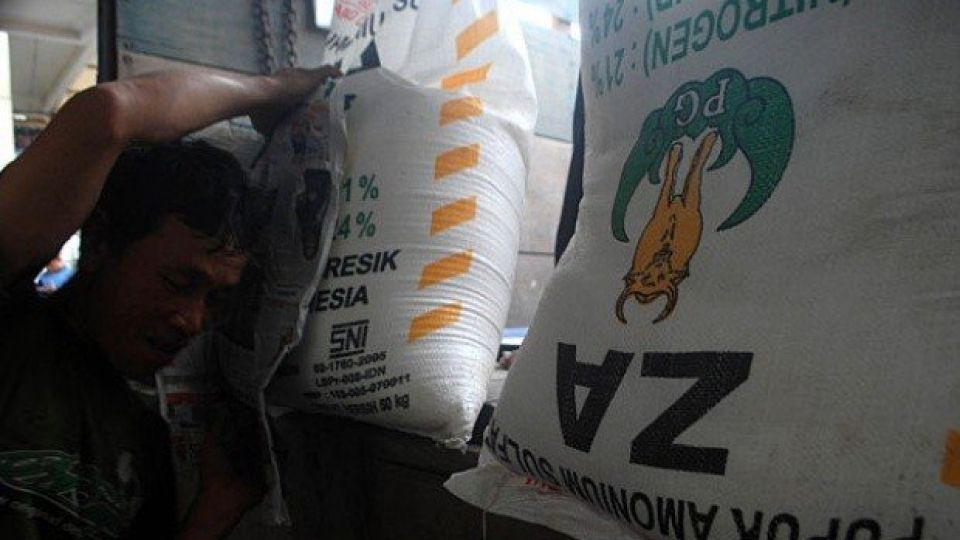March 31, 2023
JAKARTA – Fertilizer prices have declined in recent months after a gradual hike since the beginning of the COVID-19 pandemic, according to Rahmad Pribadi, the president director of state-owned fertilizer firm PT Pupuk Kalimantan Timur (Pupuk Kaltim).
However, the downward trend was “still slow”, he said in a press conference on Wednesday, while noting the gradual decline followed a prolonged increased in fertilizer prices that began back in March 2020.
“Since the pandemic ended, the price has been declining. We see an increase in raw-material exports from China,” Rahmad stated on Wednesday, as quoted by Tempo.
Unfortunately, the war between Russia and Ukraine had pushed up natural gas prices, which were closely related to fertilizer production, he said. The highest price increase happened in nitrogen-based fertilizers, especially Urea.
Wijaya Laksana, senior vice president and corporate secretary at Pupuk Indonesia, the parent company of Pupuk Kaltim, said fertilizer prices had jumped significantly because 30 percent of phosphorus and potassium came from Russia and Belarus.
“Can you imagine that a third of global [fertilizer raw material] supply is gone due to war? That’s why the price is going crazy,” Wijaya said on March 13.
He cited figures saying the price of NPK fertilizer at one point hit Rp 18.1 million (US$1,202) per tonne, three times its normal price at around Rp 6 million.
As a countermeasure, Wijaya explained, the company had made agreements with Russian companies to provide potassium and was searching for other raw materials as well.
“We need to remember fertilizer was excluded from the sanctions [against Russia], so we can still buy this raw material from Russia,” Wijaya stated.
Now, global fertilizer production has improved, and that eases prices. One of the reasons, according to Pupuk Kaltim’s Rahmad, is a subsidy from the United States government to accelerate the local production of Urea fertilizer.
Fertilizer deficit
President Joko “Jokowi” Widodo drew attention to the fertilizer deficit in the country when he explained earlier this month local producers had failed to meet domestic demand amounting to 13 million tonnes.
“In Indonesia, we can only produce 3.5 million tonnes,” the President said during an event in Central Java on March 10, as quoted by the State Secretariat.
Read also: Govt to build fertilizer plant in West Papua with 2027 operation target
Similar to Pupuk Kaltim executive’s comment, the President also named the war between Russia and Ukraine as the main cause of the issue. In June last year, he also discussed the fertilizer issue during a meeting with Russian President Vladimir Putin in Moscow.
“It’s not only Indonesia that lacks fertilizer. Other countries that don’t have fertilizer factories even got nothing,” Jokowi said.
That is why, according to the President, Indonesia imported around 6.3 million tonnes of fertilizer, but even that was not enough to meet demand.
In February, the government decided to revive PT Pupuk Iskandar Muda, which could produce 570 thousand tonnes per year. Pupuk Kaltim also planned to build a factory in Papua Barat that is to have a production capacity of 2 million tonnes.


